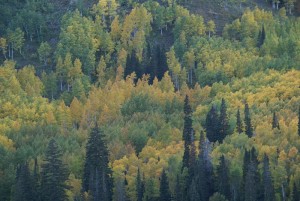 “…let us be protectors of creation, protectors of God’s plan inscribed in nature, protectors of one another and of the environment.” – Pope Francis, March 19, 2013
“…let us be protectors of creation, protectors of God’s plan inscribed in nature, protectors of one another and of the environment.” – Pope Francis, March 19, 2013
Our new Holy Father spoke about our responsibility to care for and protect the environment several times in his homily on the day he was formally installed as the bishop of Rome. Similarly, under his predecessor, Pope Benedict XVI, the Vatican released a list of “new” seven deadly sins, social sins including “Polluting the environment.”
The Catechism of the Catholic Church instructs us, “The dominion granted by the Creator over the mineral, vegetable, and animal resources of the universe cannot be separated from the respect for moral obligations, including those toward generations to come” (2456).
With Earth Day observed last week, I want to explore the relationship between faith and the environment, between spirituality and creation. It is clear our faith calls us to be good stewards of creation – to consider those who will inhabit the earth after us, to protect the creation of our Creator, to live our lives as Christians who regard the impact our actions have other others.
Like many people, I have always felt God’s presence when in nature – when standing before a vast ocean, hiking in a lush forest, or beholding the canyons and sandstone caves out West. This sense of God, this sense of peace is what compelled me to learn more about caring for the environment.
I learned that, as Americans, we are accustomed to living in a way would be considered wasteful to our brothers and sisters around the world.
Soon, I found myself drinking from a reusable water bottle, eating less meat, and using cloth grocery bags.
Eventually, our family started using reusable everything and composting, became vegetarians, and are cloth diapering our son. We opted to stay a one-car family and shop locally at a farmers market in the summer.
These actions, though small and individual, are ways of personal sacrifice for the greater good of humankind and creation. They are practices in self-control, and have the bonus of being frugal for our cash-strapped little family.
By using reusable items instead of disposable – such as my water bottle, travel mug, and cloth diapers – we are keeping less waste out of landfills and preventing pollution from the shipping and production of those disposable counterparts.
Some may argue that caring for creation involves caring about trees and animals more than we care about humans. In fact, just the opposite is true – to care about the environment means you care more about other brothers and sisters around the world since the poor and marginalized are disproportionately harmed by environmental injustice. From migrant workers exposed to harmful pesticides to toxic waste dumping and air releases that are concentrated in minority neighborhoods and unsafe drinking water caused by the dumping of waste from factories, those with less political power are most affected by the toxicity created from our excessive consumption and waste.
It is all interwoven – both as humans and as Christians, we live in a global community where our actions (and inactions) affect others.
Similarly, my vegetarianism doesn’t mean I value animals more than humans (in fact, I’m not much of an “animal person” at all!). On the contrary, I feel called to “Live simply so that others might simply live,” as Blessed Mother Teresa instructed us. This is my way of living more simply and consuming less resource-intensive food. Livestock is one of the greatest sources of environmental problems. Again, I view this as both a calling and as a personal sacrifice. I know that others would struggle with the sacrifice, but I do not – and so I eliminated it from my diet. It is my prayer and intention that my using fewer resources creates a better world for the least among us.
So, you see, I am not simply a crunchy, hippie, green mom because I like to feel superior, am a martyr, or worship animals. I know that this is part of my vocation to live as a witness in caring for God’s creation. It is in living in accordance with these values of stewardship for creation that I feel most whole and most spiritually at peace with my actions.
I’ll leave you with the words of Pope Emeritus Benedict XVI that compel me to believe that the responsibility lies with all of us:
“Preservation of the environment, promotion of sustainable development and particular attention to climate change are matters of grave concern for the entire human family. “ -Pope Benedict XVI, Sept. 1, 2007
This article originally appeared on Fathers for Good and is used with permission.



